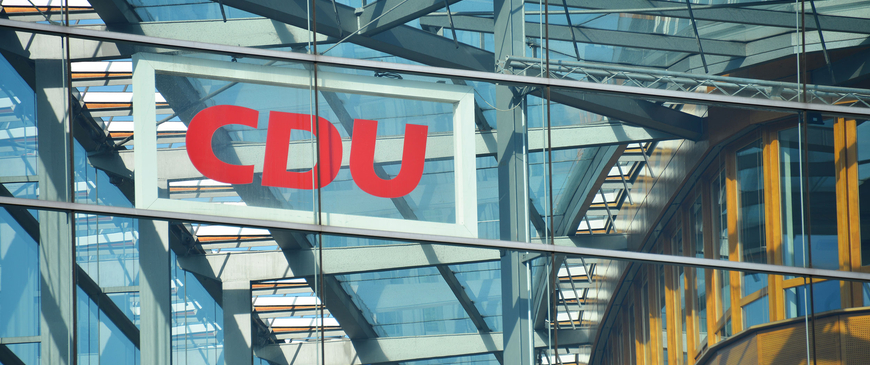
The CDU must not draw the wrong lessons from the Bavarian and Hessian elections
The Alternative for Germany increased its vote share in two key state elections in Germany on 8 October. Christina Keßler argues that Germany’s Christian Democrats must not learn the wrong lessons from the results by adopting the rhetoric of the far right.
Two of the most populous regions of Germany went to the polls last weekend. The election results from Bavaria and Hesse showed a clear rise in support for the right-wing populist Alternative for Germany (AfD). While the AfD has achieved good results in the former East Germany in the past, this success in the West shows how much the party has been normalised in Germany.
Last week in Manchester, Britain’s Conservatives were looking at their shrinking support and deciding how warmly to embrace the politics of the populist right in the UK. Germany’s Christian Democrats (CDU) will be studying last weekend’s results and considering whether they want to follow a similar path.
Breaching the Brandmauer
Influenced by the country’s history, all major German parties have so far categorically excluded co-operation with the AfD. By erecting a Brandmauer – firewall – German parties aim to keep the AfD out of office and to stop it portraying itself as a legitimate democratic force.
Friedrich Merz, the CDU party leader since 2022, has sent mixed messages on the issue, however. He has been trying to sharpen the conservative profile of the CDU, breaking with Angela Merkel’s more centrist approach. Recently, he accused asylum seekers of taking dental appointments from German citizens. Over the summer, he made remarks implying support for co-operation with the AfD at the local level, but later walked back on this after a significant backlash, including from members of his own party. Despite this, in September in the state of Thuringia, parliamentarians from the CDU passed tax cuts with the help of AfD votes.
The election results in Bavaria and Hesse will further fuel the debate over how to oppose the AfD most effectively. The biggest party in Bavaria is the Christian Social Union (CSU), the Bavarian sister party of the larger CDU with which it forms a single group in the federal Bundestag. Minister president Markus Söder is the party leader of the CSU. In the campaign, Söder sometimes verged on the populist. But while the CSU is trying to frame its vote share – 37 per cent (compared to 37.2 per cent in the previous election) – as a success, this represented its worst result in a Bavarian election since the 1950s.
The CSU and the FW
Currently, the CSU forms a governing coalition in Bavaria with the Free Voters of Bavaria (FW), a conservative party that was originally a loose grouping of local politicians. The party is led by Hubert Aiwanger, who has a reputation for drifting too far to the right. The FW’s conservative positions are often similar to those of the CSU, but Aiwanger’s rhetoric is much sharper in tone, often focused on topics associated with “culture wars”.
Last June, Aiwanger drew sharp criticism for adopting far-right rhetoric, when in a speech to protesters he said “the point has been reached where the silent vast majority of this country must finally take back democracy”. In August, a German newspaper revealed that when Aiwanger was a student, an antisemitic leaflet was found in his backpack. Aiwanger’s brother claimed responsibility for writing it, but the way Aiwanger dealt with the scandal almost led to his dismissal as Bavaria’s Vice Minister-President. However, Söder ultimately let him stay and Aiwanger subsequently portrayed himself as the victim of a campaign against him.
The scandal seems not to have damaged the FW – rather the opposite. It won the second largest vote share (up from 11.6 per cent to 15.8 per cent). Aiwanger’s strategy was to woo voters from the AfD by adopting the latter’s issues and talking points. Some CDU/CSU politicians might take his success as a sign that the way to deal with the AfD is to outflank it on the right. But that would be a wrong and dangerous inference. While the FW gained votes, so did the AfD (up from 10.2 per cent to 14.6 per cent). The FW and the AfD both won over voters who had previously backed the CSU or other parties. Crucially, neither the CSU nor the FW managed to attract voters who backed the AfD in previous elections.
Learning the wrong lessonsThe Bavarian election showed that when Christian Democrat and conservative parties use the rhetoric of the far right, it makes the far right seem more respectable. Citizens would then rather vote for the original than for the copy. As then CSU Secretary General Markus Blume stated in 2020, “one cannot out-stink a skunk”.
With several regional polls happening next year, as well as elections to the European Parliament, the German Christian Democrats need to find a strategy to deal with the AfD that does not just consist of adopting their rhetoric. As support for the far right has grown across Europe, a process of normalisation has set in. In several countries, far-right parties are part of governing coalitions, successfully portraying themselves as legitimate political forces.
Germany has managed to maintain a firewall better than most, but cracks are appearing. Whether Christian Democrats partner with the AfD or merely steal its language, a more nationalist/populist Germany would be profoundly disturbing for neighbouring countries and potentially disruptive within the EU.
Christina Keßler is a Clara Marina O'Donnell Fellow at the Centre for European Reform.
